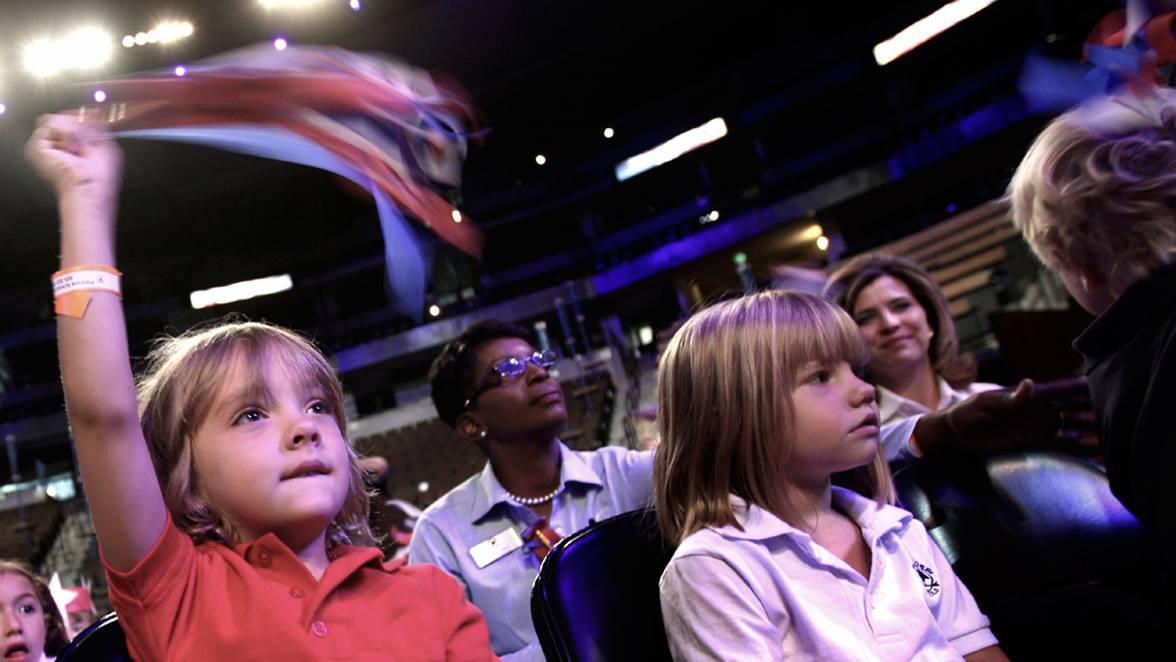Explaining the election to kids can be challenging
Listen
Explaining the political process to kids can be confusing
Are you discussing politics around your kitchen table this summer with your kids? How’s that working out?
It can be complicated explaining the mechanics of our democracy.
“I grew up during the ’60s and my parents were both active politically and in civic roles, and we literally talked about the news of the day,” said David Thornburgh, president and CEO of the Committee of Seventy. He is the son of former Pennsylvania Gov. Dick Thornburgh.
“My parents would bring me along to a rally or help on a campaign,” he added. “My dad was a U.S. attorney, and I went to his trials when he was prosecuting public officials on public corruption. When you’re 11 or 12, that makes a huge difference.
David Bradley is a Philadelphia-based theater director and educator. He’s written and directed the new play “Voices of Voting,” commissioned by the Committee of Seventy. It’s running in conjunction with events surrounding the DNC in Philly.
“The play ties the activism around the Voting Rights Act that was signed by President Johnson in 1965 to the need for youth voter engagement now,” Bradley said. “David and the Committee of Seventy had come to me saying how can we capitalize on this moment over the past year where we had the 50th anniversary of the Voting Rights Act to this election.
“How do we tie that to helping young people think about how they can be involved in the political process,” he added. The play takes a particular look at Selma, Alabama, which was a hotbed of activity during the peak of the Civil Rights Movement and how young people — including now-Congressman John Lewis — helped reshape voting and civic duty through activism.
“Some of the first activists [in Selma], were teenagers,” Bradley said. “Selma had been written off by the organizers; grownups wouldn’t get involved. The teenagers were the ones who led the charge.
“That was a great discovery to think that these folks literally risked their personal safety and their freedom,” he added, “so that people who were older than them could vote. These kids couldn’t even vote themselves.”
For more on “Voices of Voting” and how to talk about the election process with kids, press play at the top of the screen.
WHYY is your source for fact-based, in-depth journalism and information. As a nonprofit organization, we rely on financial support from readers like you. Please give today.


